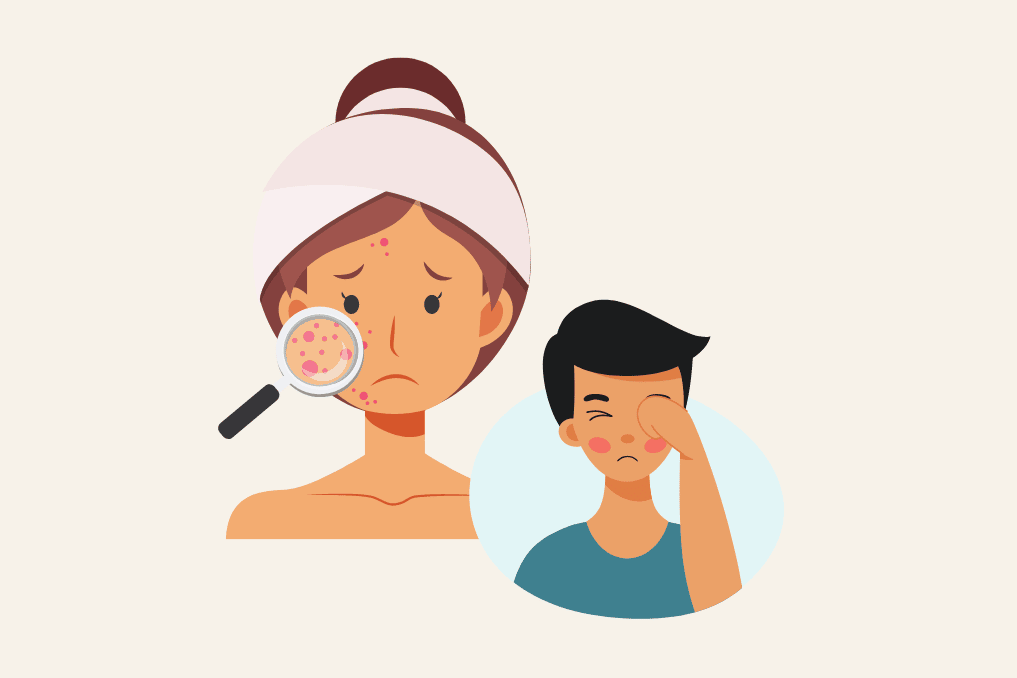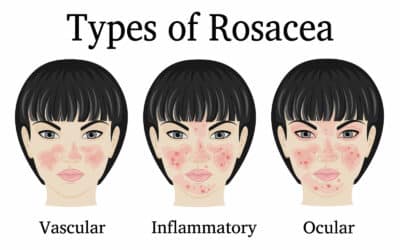
Ocular Rosacea is a skin condition affecting the eyes. Ocular rosacea can precede rosacea, which is a skin condition affecting the face only.
Usually, people between the ages of 30-50 are likely to be diagnosed with this condition. Ocular rosacea seems to develop in people who are more likely to blush and go red on occasion.
Rosacea patients may notice a range of different ‘rash like’ spots on their face, which can sometimes be mistaken as acne or other conditions. Visiting your GP or eye doctor (if it looks like ocular rosacea) is the best suggestion to confirm the diagnosis of the condition.
If you have never heard of ocular rosacea, keep on reading to find out more!
Symptoms of Ocular Rosacea
Ocular rosacea symptoms include but are not limited to the following:
- Redness
- Burning
- Itching of the eyes
- Blurred vision
- Swollen eyelids
- Sensitivity to light
- Dilated small blood vessels
Symptoms of rosacea, opposed to ocular rosacea may appear slightly different in severity.

Causes of Ocular Rosacea
Rosacea patients are usually effected by a variety of reasons including environmental factors, hereditary factors or an overactive immune system. It is not caused by poor hygiene and in no way is contagious.
These are a few of the factors that may cause rosacea:
- Spicy food
- Strenuous exercise
- Stress
- Sunlight
- Skin and hair products
- Blocked glands in the eyelids
- Eyelash mites
- Alcohol and more
If you have any symptoms or have been diagnosed with a form of rosacea, try cutting out a few of the above and see if it minimises the flare ups.
Treatment
There is no cure for rosacea, however, there are treatments that can help manage the condition and relax some of the symptoms.
Artificial tears and lubricating eye drops are proven to be effective against ocular rosacea. There are oral antibiotics which with the anti-inflammatory effect, can calm down the redness.
If you have blepharitis, a heat pack and warm water will help relieve the area. If you also use Blephadex to cleanse and remove the eyelash mites, then you will notice a significant difference in the swollen eyelids.
As mentioned previously, if you try to minimise some of the potential causes such as alcohol or spicy food, it may minimise or completely rid you of your condition.
Complications
If you notice that the ocular symptoms are worsening, then it may be time to book an appointment with your eye doctor. The symptoms to look out for which may cause complication are with the cornea and inflammation of the eyelids (blepharitis). This can cause secondary irritation of the cornea which would be uncomfortable and painful. There is a chance of vision loss with any corneal complication, which is why it is best to see an eye doctor as soon as you notice there symptoms.
